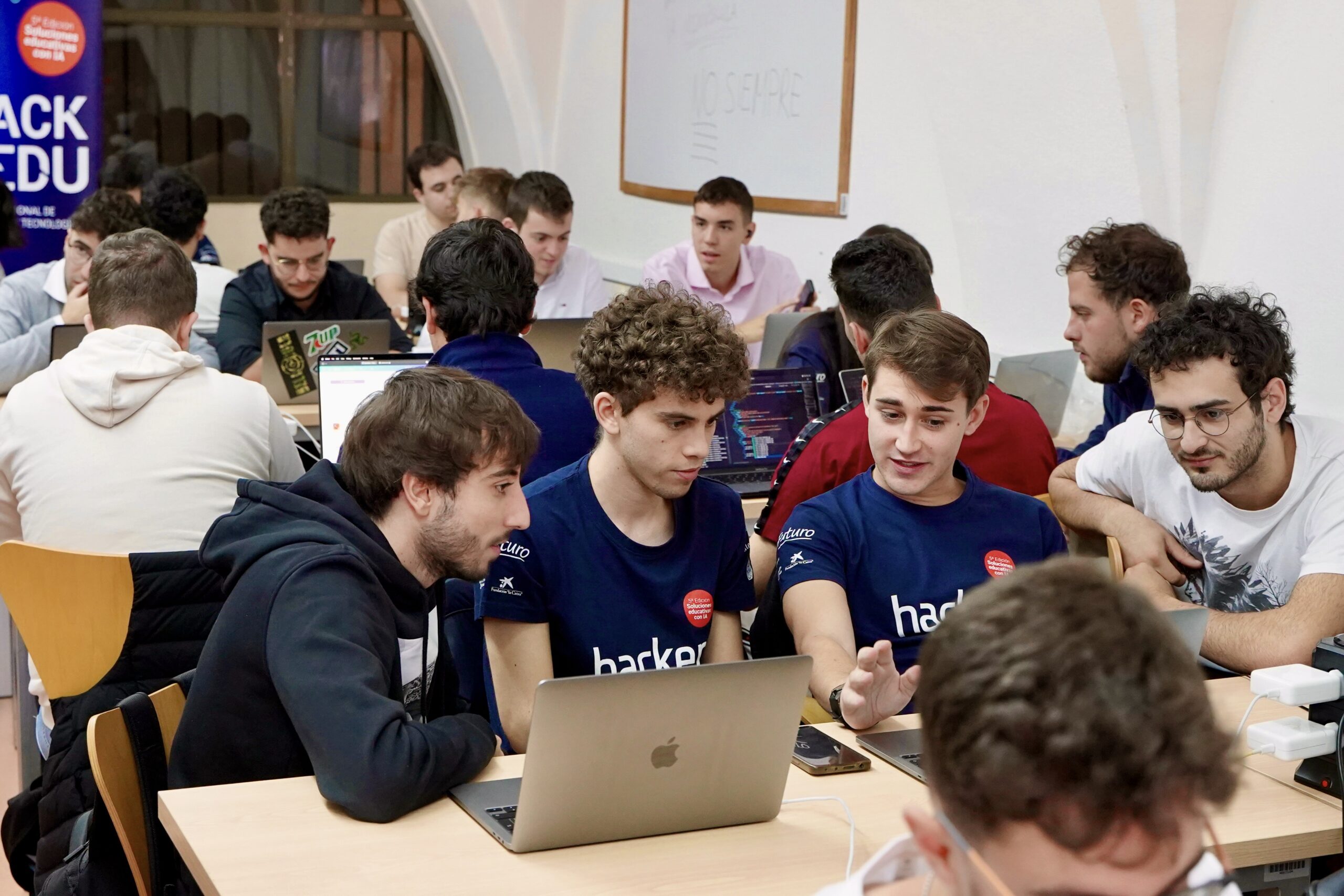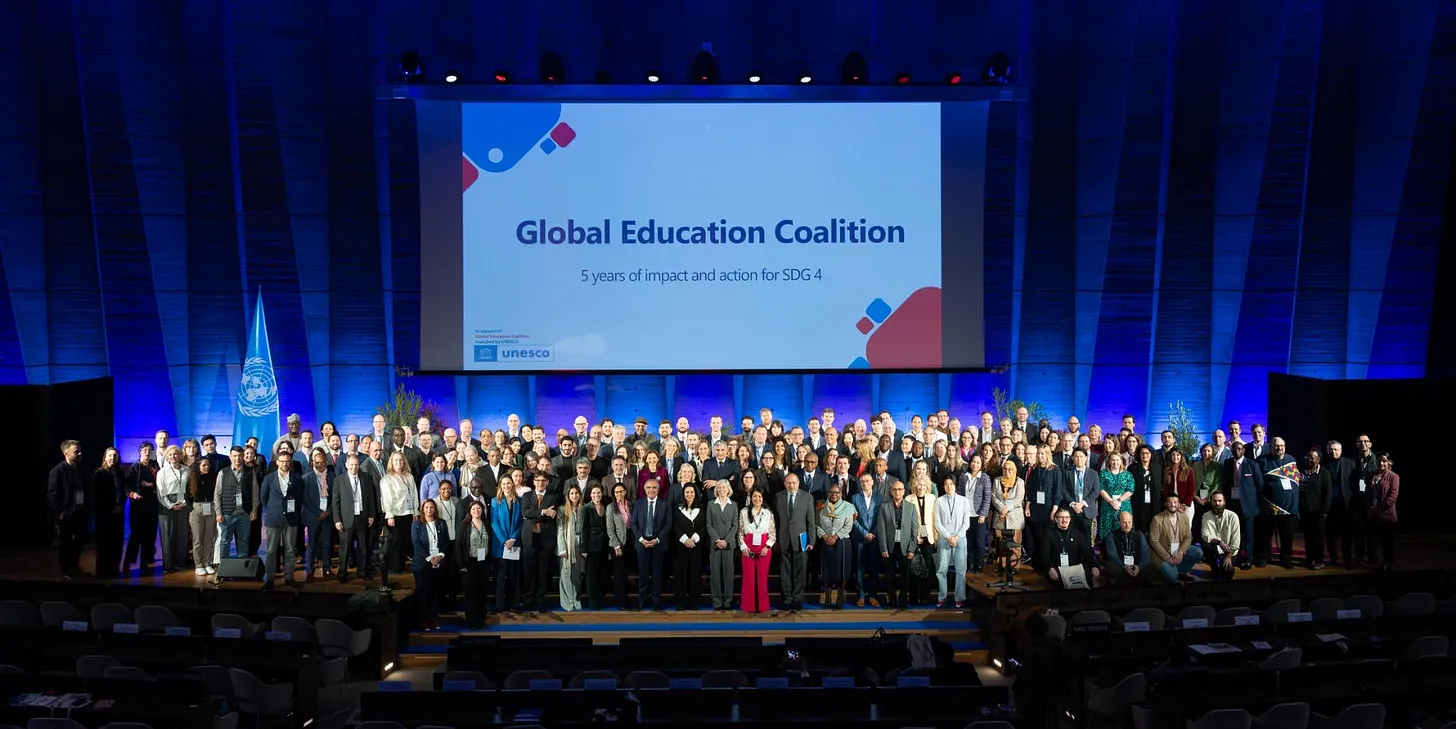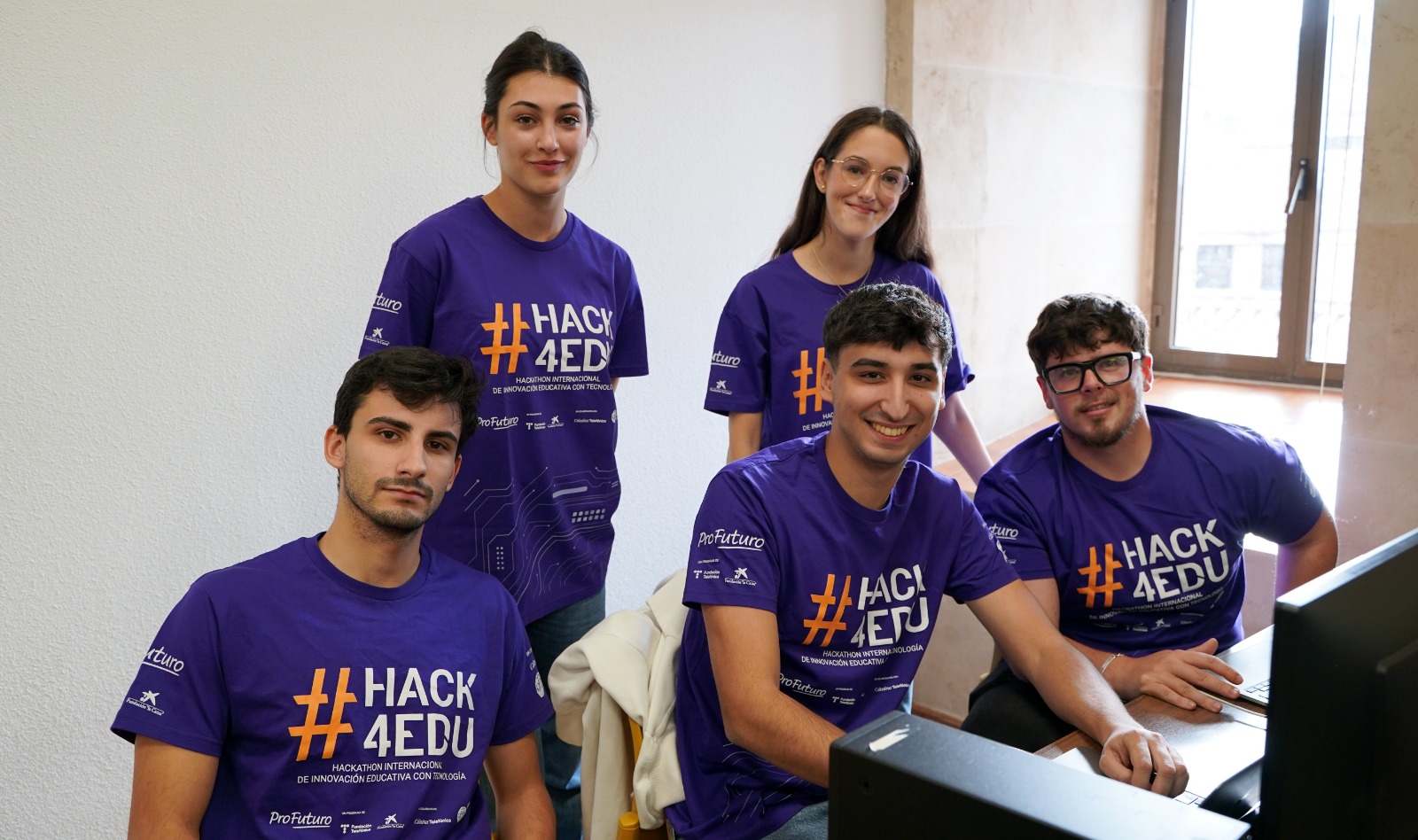The number and quality of the proposals provided and the number of participating hackers, which have broken the records of previous editions, have been a great challenge for the deliberations of the jury of #hack4edu who were attentive during the more than eight hours in which the projects of the 45 teams that reached the final were presented.
#hack4edu, the first hybrid, international hackathon with a social purpose dedicated to digital education, promoted by ProFuturo, an educational innovation programme with technology from the Fundación Telefónica and the “la Caixa” Foundation, and the Pontifical University of Salamanca (UPSA), in collaboration with the Telefónica Chairs Network, has just celebrated its 5th edition in which the consolidation of the project is demonstrated thanks to their successful participation.
Among the winners are apps that enable the detection of emotions during learning and their impact on the student’s motivation and concerns; interactive eye control of devices for people with severe motor disabilities who cannot use their hands or voice and allow them to interact effectively with the digital environment; to educational developments through the video game Minecraft – the popular minesweeper – stood out among the projects presented to win the coveted awards.
These are just some of the solutions that have emerged from this hackathon thanks to the use of AI, P2P platforms, gamification, PBL methodology -project-based learning-, development of neural networks and robotics, the result of the work of 630 hackers and 28 universities in resolving as many as 72 technological challenges related to digital education in vulnerable environments. They have all worked in a hybrid and simultaneous way with multidisciplinary and hybrid teams from 12 countries: Spain, Mexico, Venezuela, Brazil, Panama, Portugal, Uruguay, Colombia, Italy, Ecuador, Venezuela and Peru.
Innovative Category
The award-winning projects were divided into two categories: Innovative and Senior, with three winners in each of them.
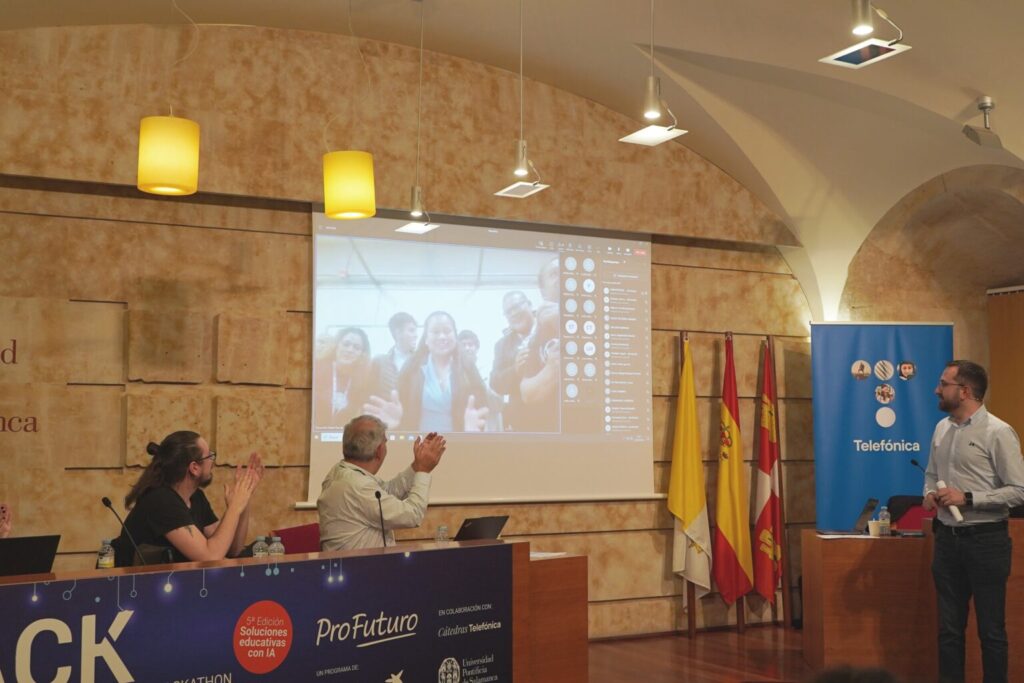
The first prize for the innovation category went to the PixelMAI application on the creation of educational activities with Minecraft and AI from the Technological University of Nezahualcóyotl in Mexico, who have developed a plugin for a Minecraft server that seeks to create a gamified learning environment, where students can interact in a dynamic and attractive way with educational content.
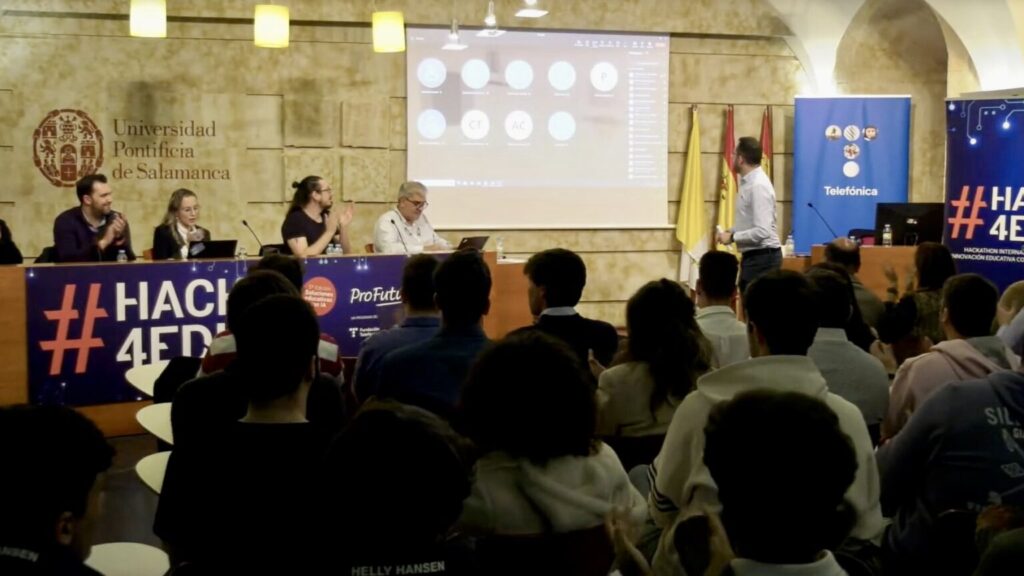
The second prize for an innovative project went to the HUANUCO team, from the SENATI (National Industrial Training Service) Higher Training Centre in Peru, which, after facing challenge 32, came up with a tool that uses AI to analyse students’ facial expressions and body language, detecting emotions such as confusion or frustration to help teachers adjust their teaching.
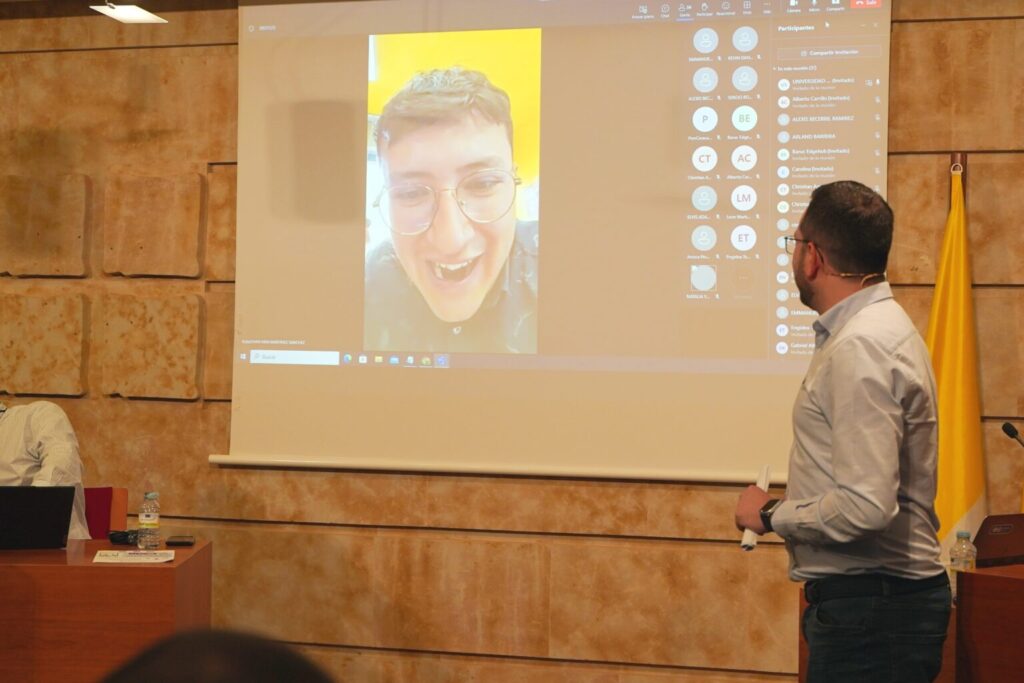
The third in the innovative category is the VisualUD team from the Francisco José de Caldas District University of Colombia with the project: “BlinkMouse: Control your World with a Blink of an Eye“, for which they developed a system that allows you to interact with the computer mouse using the movement of the eyes. It even allows you to click by blinking or making various gestures with your eyes; all this by using artificial vision to recognise users’ faces and thus identify the location of the eye. It is a project that sets out to help people with disabilities who cannot use their hands or their voice to interact with devices and therefore face great barriers in their daily lives.
Senior Projects
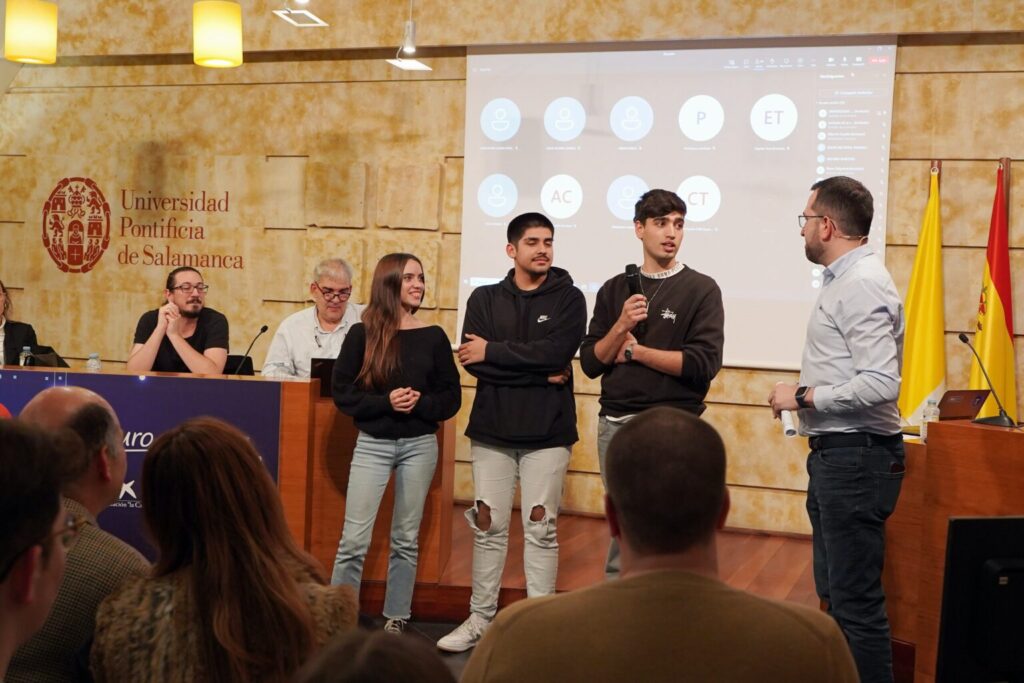
In the Senior category, Hack4Minecraft from the University of Salamanca won first prize with an app that combines the popular game Minecraft with artificial intelligence to support learning in the classroom. Thanks to the development of a plugin for a Minecraft server, a gamified learning environment is created, adaptable to any type of exercise and age. Students interact with dynamic content and thanks to a classification system, solving exercises is rewarded. In addition, the plugin includes personalised activity recommendations, based on resolution time and scores.
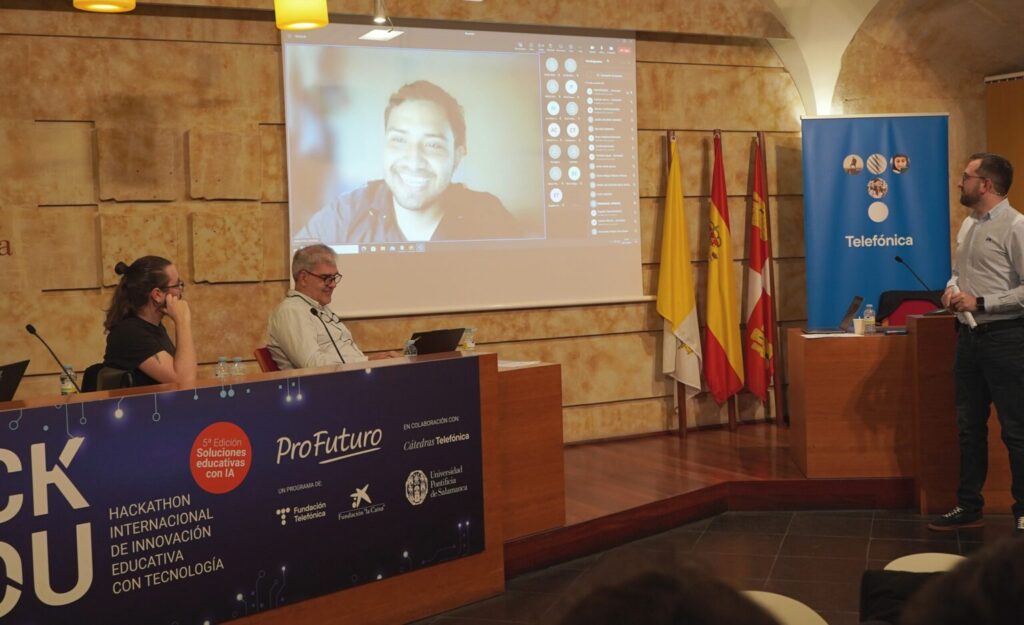
The second prize in the Senior category went to Edutech from the Technological University of Panama with the project: “Revolutionising learning with AI: Virtual Maths Tutor for Primary School Children”. The winning team of this second prize developed a platform that allows mathematics to be taught to visually impaired students. Its use is tutored, thanks to the connection of an interface for children with an API protocol -acronym corresponding to application programming interface-, from OpenAi; and another API that offers student voice recognition to interact with the platform. Although the range of content is diverse, the Edutech team has focused it on the training pathway for primary education.
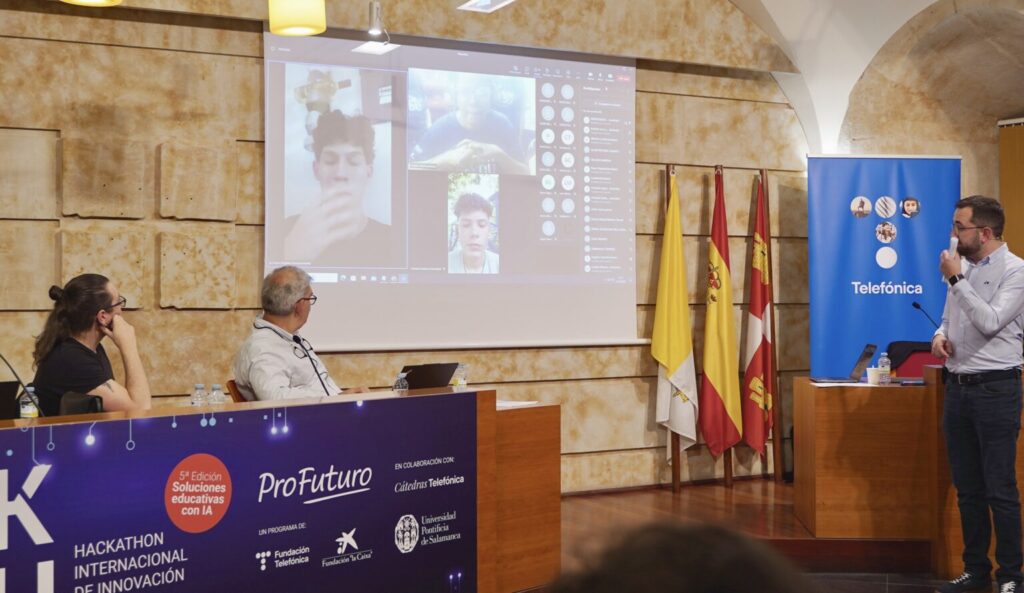
E-WASTE, from Engidea, Venezuela, is a robot that doesn’t just clean and recycle e-waste, but also empowers students through advanced features. As students improve and upgrade the robot, it evolves, offering features such as sorting and reusing materials in new projects, as well as teaching digital mining to generate economic value. These advanced features not only transform waste into useful resources, but also guide people towards a more sustainable and aware future. E-WASTE therefore becomes an educator and partner on the path towards environmental conservation and the development of innovative solutions.
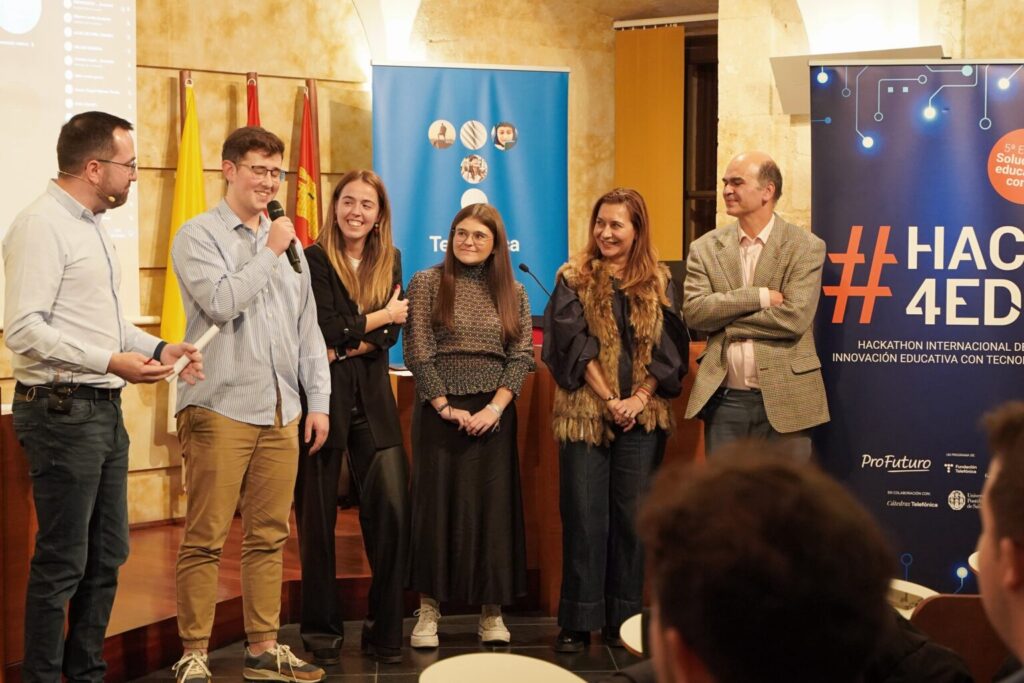
Finally, a local prize was awarded to the best project presented by one of the teams belonging to the host universities. The prize went to the project: LearnHack from the Pontifical University of Salamanca. We’re talking about the development of an accessible and personalised educational platform for students with special needs. It offers educational content tailored to students with various special needs, such as visual, hearing, motor, or cognitive disabilities and allows the personalisation of content according to the abilities and learning paces of each student. It also includes support for teachers whose tools allow content to be created and modified to adapt it to students with special needs.
#EducatingTransforms
Would you like to know more about ProFuturo’s commitment to education?
More information available at: https://profuturo.education/
X: @ProFuturo_
IG: @profuturo_
FB: @ProFuturoEducation
YT: ProFuturo
LK: ProFuturoEducation



